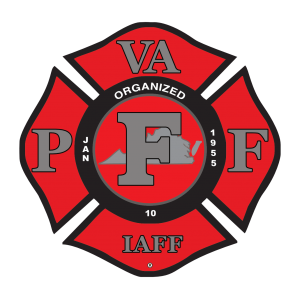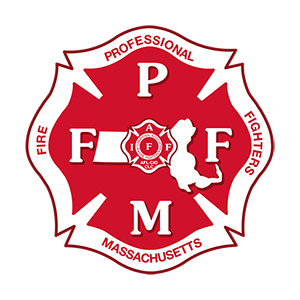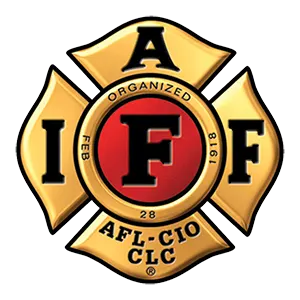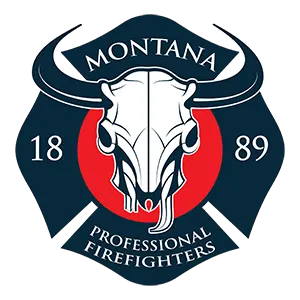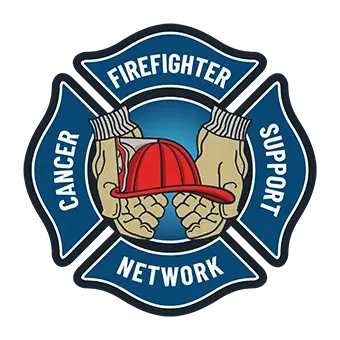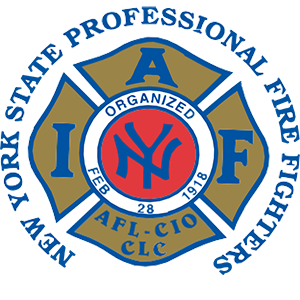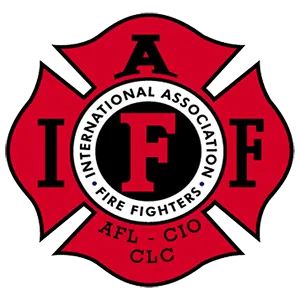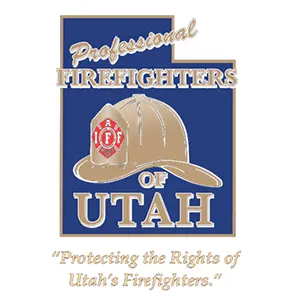NFPA 1582 Medication Disqualifications
In this comprehensive guide, we delve into the intricate realm of NFPA 1582 medication disqualifications, shedding light on its significance, implications, and practical implications for both firefighters and fire departments.
NFPA 1582 Medication Disqualifications: A Comprehensive Guide
Firefighters operate in strenuous and often perilous environments, necessitating robust measures to safeguard their health and well-being. One such critical measure is the implementation of occupational health programs based on the National Fire Protection Association (NFPA) standards, notably NFPA 1582.
The Essence of NFPA 1582
Firefighters encounter a myriad of physical and mental challenges in their line of duty, ranging from extreme environmental conditions to high-stress situations. These factors contribute to elevated risks of developing various medical conditions, underscoring the need for stringent health protocols. NFPA 1582 sets forth essential requirements for occupational health programs tailored to firefighters’ unique needs.
The NFPA 1582 standard mandates comprehensive medical exams for both new hires and incumbent firefighters to assess their physical fitness and overall health status. These exams encompass various components aimed at ensuring firefighters are capable of performing their duties safely and effectively.
NFPA 1582 Medical Evaluation Process
- Comprehensive Medical History Review: Firefighters undergo a thorough review of their medical history, including past illnesses, surgeries, medications, and family medical history. This information helps medical examiners identify any pre-existing conditions or risk factors that may impact a firefighter’s health or ability to perform job tasks.
- Physical Examination: A comprehensive physical examination is conducted to assess firefighters’ overall health status, including vital signs, cardiovascular fitness, respiratory function, musculoskeletal integrity, and neurological status. This evaluation helps identify any physical abnormalities or signs of underlying medical conditions that may affect fitness for duty.
- Blood Tests: Blood tests, including complete blood count (CBC), lipid profile, liver function tests, and metabolic panel, are performed to evaluate firefighters’ overall health and screen for medical conditions such as diabetes, high cholesterol, liver disease, and electrolyte imbalances.
- Urinalysis: Urinalysis is conducted to assess kidney function, screen for urinary tract infections, and detect signs of metabolic abnormalities or drug use that may impact a firefighter’s health or safety.
- Vision Tests: Vision tests, including visual acuity, color vision, and peripheral vision assessments, are performed to ensure firefighters have adequate visual function to perform job tasks safely, especially in low-light or hazardous environments.
- Audiograms: Audiograms assess firefighters’ hearing function to detect any hearing loss or impairment that may affect communication, situational awareness, or response to auditory cues during emergency situations.
- Spirometry: Spirometry is a pulmonary function test that measures firefighters’ lung function and capacity to assess respiratory health and screen for conditions such as asthma, chronic obstructive pulmonary disease (COPD), or other respiratory disorders.
- Chest X-ray: Chest X-rays may be performed as indicated to evaluate firefighters’ lung health, screen for pulmonary abnormalities, or detect signs of respiratory infections or occupational lung diseases.
- ECG: Electrocardiography (ECG) is used to assess firefighters’ cardiac function and detect any abnormalities in heart rhythm or structure that may indicate cardiovascular disease or increase the risk of cardiac events during duty.
- Cancer Screening: Depending on individual risk factors and occupational exposures, firefighters may undergo screening tests such as mammography, colonoscopy, or skin cancer screenings to detect early signs of cancer and facilitate timely intervention.
- Immunizations and Infectious Disease Screening: Firefighters receive vaccinations and undergo screening for infectious diseases to protect against communicable illnesses and ensure compliance with occupational health guidelines.
In addition to these standard medical evaluations, NFPA 1582 recommends tests for assessing firefighters’ aerobic capacity, body composition, grip strength, muscular endurance, and flexibility to gauge physical fitness and readiness for duty.
Understanding NFPA 1582 Medication Disqualifications
NFPA 1582 encompasses not only guidelines for assessing firefighters’ physical fitness but also provisions regarding medication usage. Understanding medication disqualifications is paramount for both firefighters and fire departments. Disqualifying medications are those that may impede a firefighter’s ability to execute essential tasks safely. These medications span various categories, including anticoagulants, narcotics, seizure medications, sedatives, anti-hypertensive agents, corticosteroids, and psychiatric medications. Regular medical evaluations, including comprehensive medication histories, are instrumental in identifying potential disqualifying medications.
- Anticoagulants: Anticoagulant medications, such as warfarin, heparin, and rivaroxaban, are used to prevent blood clots. While effective in treating various conditions, these medications can increase the risk of bleeding, which may compromise a firefighter’s ability to perform safely, particularly in situations where rapid response and physical exertion are required.
- Narcotics: Narcotics, including opioids like morphine, codeine, and oxycodone, are potent pain-relieving medications. However, their sedative effects and potential for dependence pose significant safety concerns for firefighters, impairing alertness, coordination, and judgment essential for emergency response activities.
- Seizure Medications: Medications prescribed for seizure disorders, such as carbamazepine, phenytoin, and valproate, aim to prevent epileptic seizures. While effective in controlling seizures, these medications may cause drowsiness, dizziness, and cognitive impairment, compromising a firefighter’s ability to react quickly and make critical decisions during emergencies.
- Sedatives and Hypnotics: Sedative and hypnotic medications, including benzodiazepines like diazepam and lorazepam, are commonly used to treat anxiety and sleep disorders. However, these medications can induce drowsiness, impair motor skills, and decrease cognitive function, posing significant risks for firefighters operating in dynamic and high-stress environments.
- Anti-hypertensive Agents: Anti-hypertensive medications, such as beta-blockers (e.g., metoprolol, atenolol), calcium channel blockers (e.g., amlodipine, verapamil), and ACE inhibitors (e.g., lisinopril, enalapril), are prescribed to lower blood pressure. While essential for managing hypertension, these medications can cause fatigue, dizziness, and decreased exercise tolerance, compromising a firefighter’s ability to perform physically demanding tasks safely.
- Corticosteroids: Corticosteroid medications, such as prednisone and dexamethasone, are potent anti-inflammatory drugs used to treat various conditions, including asthma, allergies, and autoimmune disorders. However, long-term use of corticosteroids can weaken muscles, bones, and connective tissues, impairing physical strength and mobility critical for firefighting activities.
- Psychiatric Medications: Psychiatric medications, including antidepressants (e.g., selective serotonin reuptake inhibitors), mood stabilizers (e.g., lithium), and antipsychotics (e.g., haloperidol), are prescribed to manage mental health conditions such as depression, bipolar disorder, and schizophrenia. While effective in stabilizing mood and reducing symptoms, these medications can cause sedation, cognitive impairment, and motor dysfunction, impacting a firefighter’s ability to perform effectively and safely during emergency operations.
Ramifications and Impacts of Medication Disqualifications
The ramifications of medication disqualifications under NFPA 1582 extend beyond individual firefighters to impact entire fire departments and communities. Disqualifications may lead to job loss, financial strain, and operational challenges for fire departments. Additionally, legal and occupational implications under the Americans with Disabilities Act (ADA) underscore the need for meticulous evaluation and adherence to established protocols. It’s crucial to balance safety considerations with accessibility and fair treatment of firefighters with medical conditions or medication dependencies.
Mitigating Risks: Strategies for Firefighters and Fire Departments
Firefighters and fire departments must adopt proactive approaches to navigate NFPA 1582 medication disqualifications effectively. For firefighters, transparency regarding medical conditions and medication usage is essential. This allows for informed decision-making and potential accommodations for non-essential tasks. Fire departments, in turn, should prioritize preventative measures, such as regular medical screenings and health management training programs. Each case of medication disqualification should be approached with sensitivity and tailored solutions to ensure the well-being of firefighters and the efficiency of fire department operations.
Frequently Asked Questions
What are NFPA 1582 medication disqualifications?
NFPA 1582 medication disqualifications pertain to prescription medications that may hinder a firefighter’s ability to perform essential tasks safely.
What are the implications of NFPA 1582 medication disqualifications for fire departments?
NFPA 1582 medication disqualifications can lead to operational challenges, legal considerations, and implications under the Americans with Disabilities Act (ADA) for fire departments.
What steps should fire departments take to mitigate medication disqualifications?
Fire departments should implement preventative measures, such as regular medical screenings and health management training programs, and approach medication disqualifications with sensitivity and tailored solutions.
Are there accommodations available for firefighters with disqualifying medications?
Depending on individual circumstances, accommodations for non-essential tasks or adjustments to medication regimens may be possible for firefighters with disqualifying medications.
Can firefighters take Adderall?
Adderall and similar psychiatric medications may be permissible for firefighters, provided they can still execute essential functions effectively.
What role does the Americans with Disabilities Act (ADA) play in NFPA 1582 medication disqualifications?
The ADA mandates fair treatment and reasonable accommodations for individuals with disabilities, including those affected by NFPA 1582 medication disqualifications.
Can other types of medications lead to disqualification under NFPA 1582?
Yes, besides the mentioned categories, other types of medications may also lead to disqualification if they pose significant risks to firefighter safety or impair their ability to perform essential duties effectively. Examples include medications with known side effects such as severe drowsiness, impaired coordination, or cognitive impairment.
Are there specific guidelines for determining medication disqualifications under NFPA 1582?
While NFPA 1582 provides general guidance on medication disqualifications, specific determinations may vary based on individual circumstances, medical history, and the discretion of medical professionals conducting evaluations. It’s essential for firefighters to undergo thorough medical assessments and disclose all relevant information regarding their medication usage to ensure accurate evaluations.
What should firefighters do if they believe a medication they are taking might lead to disqualification?
Firefighters who have concerns about the potential disqualifying effects of their medications should consult with their healthcare providers and notify their fire department’s medical personnel. Open communication and proactive collaboration between firefighters and medical professionals can help address concerns, explore potential alternatives, and ensure the safety and well-being of all personnel.
Can firefighters appeal a medication disqualification decision under NFPA 1582?
In some cases, firefighters may have the option to appeal a medication disqualification decision, particularly if they believe there are mitigating factors or inaccuracies in the evaluation process. Fire departments should have established protocols for handling such appeals, including avenues for review and reconsideration by qualified medical professionals or review boards.
What resources are available to help firefighters navigate medication disqualifications under NFPA 1582?
Firefighters can seek guidance and support from their fire department’s medical personnel, occupational health professionals, and relevant professional organizations. Additionally, educational materials, training programs, and online resources specific to NFPA 1582 and firefighter health and safety may provide valuable information and assistance in navigating medication disqualifications effectively.
Who We Work With
